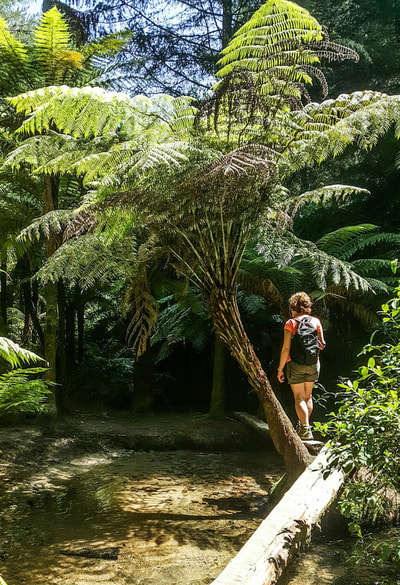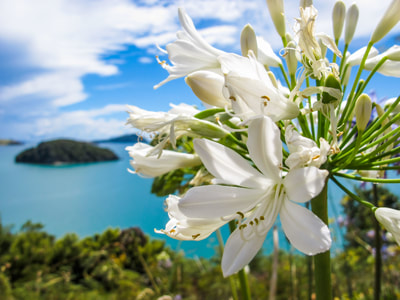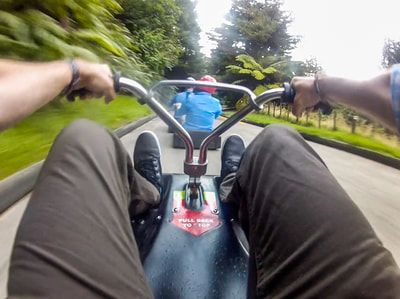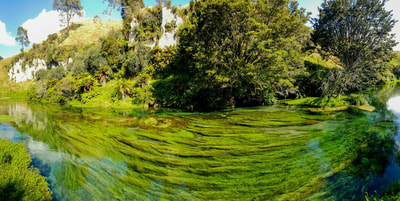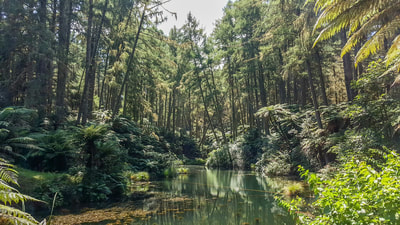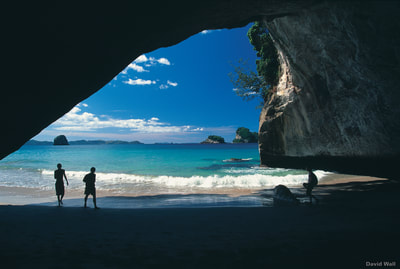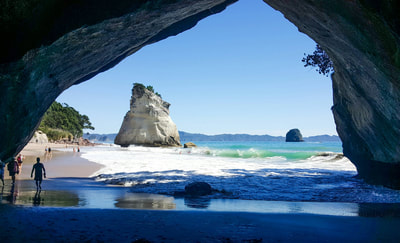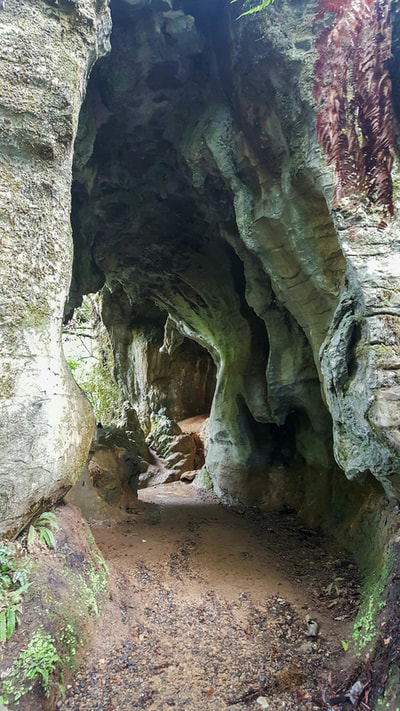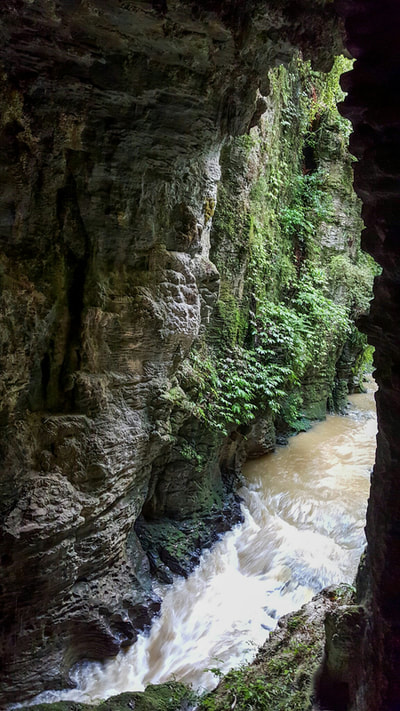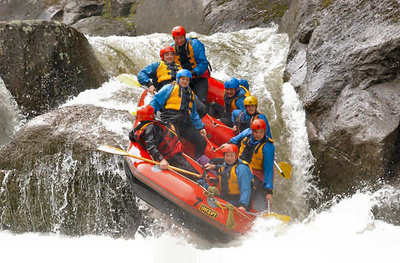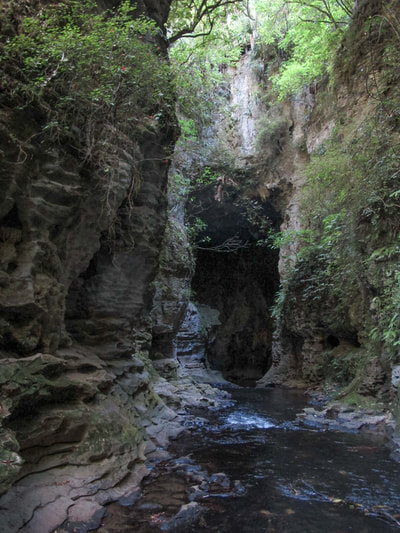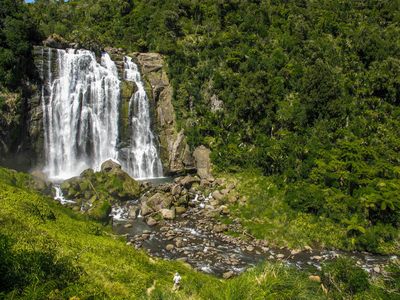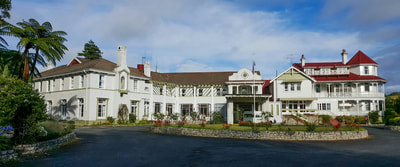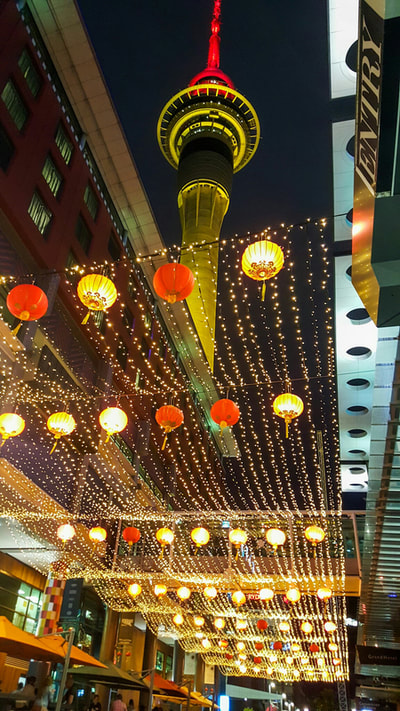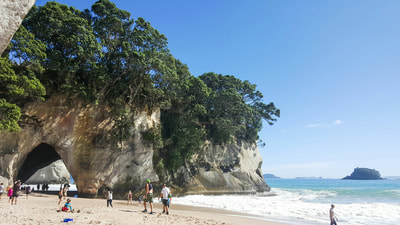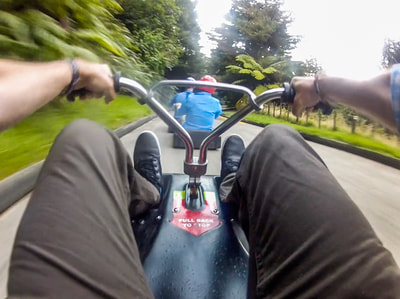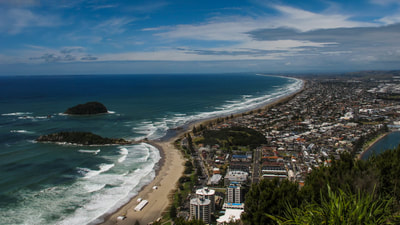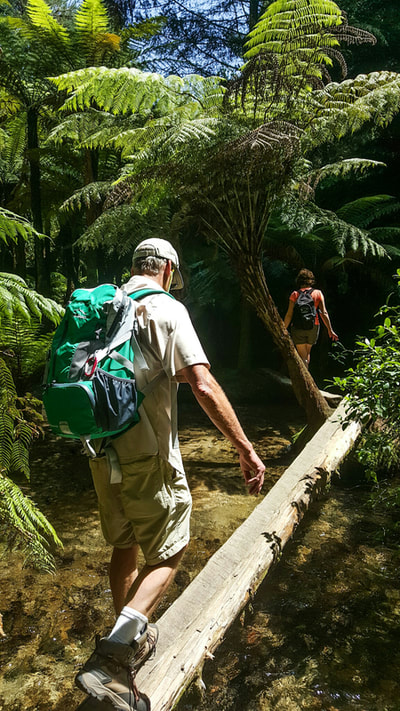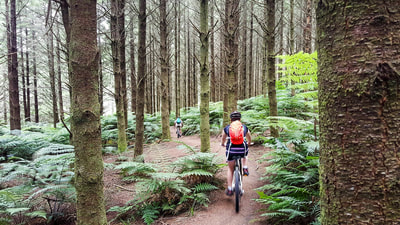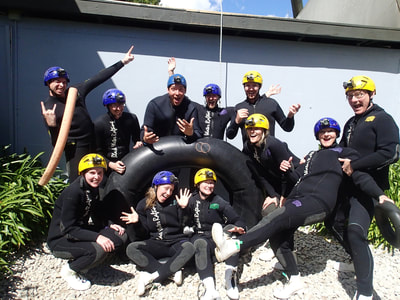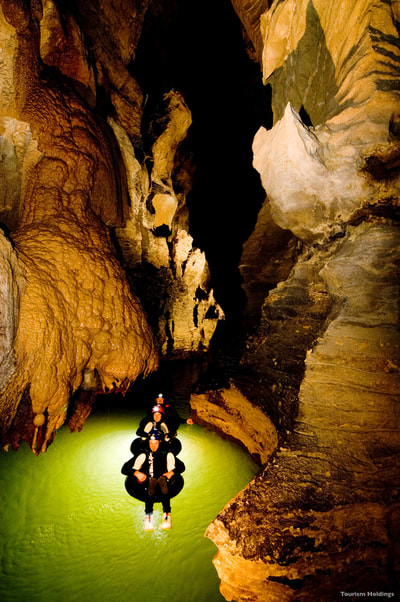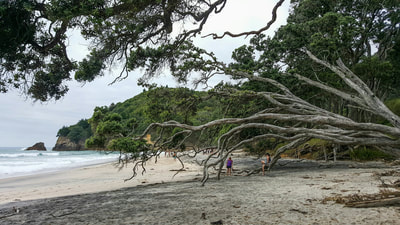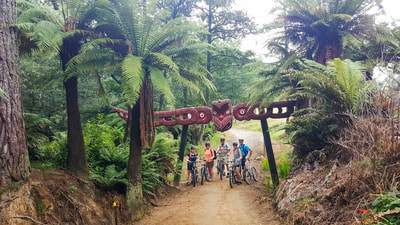DESCRIPTION:
In one word: unique. Clear water beaches, rocky ocean cliffs, sleepy oceanside communities, caves, hot springs, mud pools, geysers, redwood forests, and Maori Culture give you a glimpse. Terrain offers adventurers opportunities like biking, rafting, spelunking, surfing, and hiking.
7 Days / 6 Nights
Starting and ending in Auckland
Starting and ending in Auckland
|
ADVENTURE INCLUDES:
|
Pace 3 – Several destinations, average time in each location: 2-3 days.
|
CUSTOMIZE YOUR ADVENTURE:
|
Thrive Adventures itineraries represent the best our locations have to offer, but we know that each traveler has unique goals. Drop us a line to explore customization. THIS is where Thriving begins! To wet your appetite take a look at the itinerary below.
|
|
Cost: $3299 ($299 USD Deposit + 2 Payments of $1500)
Or, pay in full for $2999 |
All pictures taken by Thrive Adventures Guides and Travelers
Click or touch to view full size pictures in gallery
FLIGHTS FROM US TO NEW ZEALAND
Most flights depart from Los Angeles (LAX) or San Francisco (SFO), Houston (IAH) being the only acception, and travel overnight to Auckland (AKO). Some carriers will incorporate a layover, so be sure to look carefully at the arrival date and time. In Auckland you will clear customs and then it is quick and easy to fly to regional airports around New Zealand.
FLIGHT BOOKING
The best prices are generally found online, and airlines do not typically offer less expensive rates to travel agents or tour operators. However, airline group booking departments sometimes offer cheaper rates for groups of 10 or more.
Flight prices may fluctuate not only by proximity to your trip dates, but also by demand for those dates. For example, prices may escalate as the “high season” for a travel destination approaches or as seats fill and new routes are opened for sale. We suggest setting fare alerts through a travel website to track the prices and help you secure the best deal.
CUSTOMS
Clearing customs in Auckland generally takes about 1 hour. If you are planning to continue flying from Auckland to another destination within New Zealand, you will need to: 1) clear customs; 2) check in with the airline providing your next flight; 3) clear security again. We recommend you allow 3 hours for this process.
New Zealand has very strict biosecurity procedures to prevent the harmful pests and diseases from crossing their border. The Passenger Arrival Card you receive on your inbound flight tells you what New Zealand considers "risk goods". All risk goods must be declared or be disposed of in marked amnesty bins at air and sea ports. If you're unsure – declare. People failing to declare biosecurity risk goods – even by accident – may be instantly fined an NZD $400 infringement fee. Anyone caught smuggling a prohibited or risk item could be fined up to NZD $100,000, face up to 5 years in prison, and/or be deported. If in doubt, ask a quarantine officer when you arrive at the airport. More here: https://www.mpi.govt.nz/travel-and-recreation/arriving-in-new-zealand/items-to-declare/
PRE- & POST-ADVENTURE EXTENSIONS
New Zealand travel options are endless, and you can make the most of your experience with customized adventure extensions. THIS is where Thriving begins! Contact us to explore. CONTACT US LINK
MEETING LOCATION IN DESTINATION COUNTRY
Depending on the arrangements you’ve made with Thrive Adventures, your guide will either fly with you and help to navigate the airport - or greet you as you exit customs on arrival in New Zealand. Detailed date and time information will be disseminated as your adventure approaches. From the moment we engage, you’ll be able to enjoy yourself, completely at ease, while we do the rest.
WEATHER
In general, New Zealand summer stretches from November to March, and winter from June to August. On the North Island of New Zealand, summer temperatures range from 55ºF to 80ºF and winter temperatures from 45ºF - 65ºF. Though the weather is generally sunny, warm, and comfortable, layered clothing is advised as the weather is occasionally unpredictable.
WHAT TO BRING
A comprehensive packing list is provided below, but as a rule, pack lightly. Keep it to 1 suitcase and 1 carry-on backpack/daypack with space left inside each bag. Most travelers return with souvenirs, and that extra space will be crucial to avoid baggage fees and travel hassles on the flight home. Contact your airline for specific baggage and travel fee information.
PACKING CHECKLIST
Day pack / backpack (carry on)
1 suitcase / duffle bag
Passport
Credit / Debit Cards
Personal Medication (Pack in carry on. By TSA standards, each medication must be in its original container with your name on the label.)
Camera & Charger (optional)
Towel (microfiber/quick-dry works best for travel, but is not a necessity)
Water bottle
Sunglasses
Sunscreen
Sunhat
Warm Hat (for hike)
Warm Gloves (for hike)
Swimsuit
Flashlight / Headlamp
Energy Snacks
Hiking Boots / Shoes
Toiletries
Jeans / Trousers
Shorts
T-shirts
Sweatshirt or Fleece
Rain Jacket or Poncho
Socks
Thick Socks
Underwear
Quick-dry Shirt (optional)
Laundry Bag
Small Travel Pillow (Optional)
A Good Novel
Insect Repellent
Alarm Clock
Earplugs
Power Adapter/Converter
TRANSPORTATION
Transportation in a foreign country is often an entertaining experience, but your guides are skilled at navigating in these circumstances. All you have to do is hop in and enjoy the scenery.
ACCOMMODATION
Location, location, location! Thrive takes pride in providing comfort and security at all accommodations, and our trusted local friends create unique and memorable experiences for our guests. We do our utmost to honor room-type, amenity, and special requests, and to provide you with your ideal experience. Hotels are our accommodation of choice, with other options customizable by preference including hostels, luxury hotels, and everything in between!
MEALS
Thrive Adventures has spent more than a decade exploring the best restaurants, diners, and local bites New Zealand has to offer, and we build these into each trip. While group dining always enriches the experience, we also recognize that travelers need time to explore independent options. Most of our meals will be planned, but you’ll also have opportunities to choose your own flavor. We will specify in advance which meals are on your own, and we’ll have recommendations at the ready.
OUTLET ADAPTERS & POWER CONVERTERS
New Zealand uses a different type of outlet than is standard in the US: slanted 3 prong. You will need an adapter to plug in your devices. These are readily available online or in airports and convenient stores in New Zealand. The voltage in New Zealand is also different: US 110V, NZ 220V. Plugging a US standard 110V electrical device into a New Zealand standard 220V outlet will result in FRYING your device! Most laptop, tablet, cell phone, and other battery chargers (hair dryer, etc) come equipped with voltage converters, but it is worthwhile to inspect your specific device and ensure it has this capability. If your power cord or device reads “110V - 220V” (or similar), your device will convert power from one voltage to another and you need only an outlet adaptor to use and/or charge it. If it reads only “110V,” DO NOT PLUG IT IN! This device requires a converter AND an outlet adapter for use in New Zealand. Though adapters are small and lightweight, converters can be bulky, heavy, and a pain to travel with.
CELL PHONES & CELLULAR DATA
New Zealand generally has good reception and data availability. The best option for most travelers is to switch out the current SIM card in their current phone with one from a local provider in New Zealand. The interchangeable SIM card is a mini memory chip that contains a subscriber’s service information (local phone number, minutes used, contact list, etc). Once your new SIM card is installed, you will be able to receive calls and texts only via the New Zealand phone number associated with the card. Don’t worry - your original phone number will not be lost. Callers who call your original phone number will be forwarded to voicemail and you can check that voicemail with your New Zealand SIM card installed. Don’t throw away your old SIM card! Upon return, reinstall your old SIM card and restore your phone to its original phone number.
New Zealand service providers sell SIM cards in airport kiosks, corner stores, gas stations, etc. Most newer cell phones are unlocked for international use, but you should contact your current service provider before you travel to ensure that this is the case with your device. Your current service provider may also offer international calling, texting, and data plans. This is typically more expensive than the SIM card option, but it will allow you to make and receive calls and texts with your original phone number while in New Zealand. Contact your current service provider to explore options.
INTERNET
Wireless internet access is available at most accommodations and restaurants. There is often a nominal fee for use, but some locations provide this for free. Public internet cafes are also widely distributed through most cities.
SPENDING MONEY & ADDITIONAL COSTS
Each traveler’s funds and purchase preferences are unique. We recommend you allow at least $50 per day for souvenirs and any additional food purchases you may desire, but this is merely a guideline and may differ from person to person.
CURRENCY
As most venues in New Zealand accept credit and debit cards, there is no need to carry an abundance of cash. ATMs are readily available, though they typically require an international transaction fee. We strongly recommend you CONTACT YOUR BANK for specific fee details and ALERT THEM THAT YOU WILL BE ABROAD. Fraud departments will sometimes lock accounts when a transaction is attempted from an unexpected location.
Exchange rates vary continuously, but the US dollar is typically valued above the New Zealand dollar. Visit www.exchangerates.com for current information.
VISAS
New Zealand automatically waives its Visa requirement for travelers with U.S. passports, and all other required paperwork will be given to you aboard your international flight. For more information, visit http://www.immigration.govt.nz/migrant/stream/visit/.
TRAVEL INSURANCE
Travel insurance is strongly recommended. Please make special note that travel insurance companies do require you to purchase insurance within a short window after paying your deposit to Thrive Adventures. Time frames typically vary from 1-15 days. Ensure you read all the fine print. Most packages will not reimburse your trip “for any reason”. If you want this coverage, ensure it is clearly stated in the agreement.
VACCINES
No vaccines are currently recommended or required to enter New Zealand.
TRAVELER MINIMUM
A minimum of 4 travelers is required to run this adventure at the advertised price. For information on private or custom adventures, please contact us.
Most flights depart from Los Angeles (LAX) or San Francisco (SFO), Houston (IAH) being the only acception, and travel overnight to Auckland (AKO). Some carriers will incorporate a layover, so be sure to look carefully at the arrival date and time. In Auckland you will clear customs and then it is quick and easy to fly to regional airports around New Zealand.
FLIGHT BOOKING
The best prices are generally found online, and airlines do not typically offer less expensive rates to travel agents or tour operators. However, airline group booking departments sometimes offer cheaper rates for groups of 10 or more.
Flight prices may fluctuate not only by proximity to your trip dates, but also by demand for those dates. For example, prices may escalate as the “high season” for a travel destination approaches or as seats fill and new routes are opened for sale. We suggest setting fare alerts through a travel website to track the prices and help you secure the best deal.
CUSTOMS
Clearing customs in Auckland generally takes about 1 hour. If you are planning to continue flying from Auckland to another destination within New Zealand, you will need to: 1) clear customs; 2) check in with the airline providing your next flight; 3) clear security again. We recommend you allow 3 hours for this process.
New Zealand has very strict biosecurity procedures to prevent the harmful pests and diseases from crossing their border. The Passenger Arrival Card you receive on your inbound flight tells you what New Zealand considers "risk goods". All risk goods must be declared or be disposed of in marked amnesty bins at air and sea ports. If you're unsure – declare. People failing to declare biosecurity risk goods – even by accident – may be instantly fined an NZD $400 infringement fee. Anyone caught smuggling a prohibited or risk item could be fined up to NZD $100,000, face up to 5 years in prison, and/or be deported. If in doubt, ask a quarantine officer when you arrive at the airport. More here: https://www.mpi.govt.nz/travel-and-recreation/arriving-in-new-zealand/items-to-declare/
PRE- & POST-ADVENTURE EXTENSIONS
New Zealand travel options are endless, and you can make the most of your experience with customized adventure extensions. THIS is where Thriving begins! Contact us to explore. CONTACT US LINK
MEETING LOCATION IN DESTINATION COUNTRY
Depending on the arrangements you’ve made with Thrive Adventures, your guide will either fly with you and help to navigate the airport - or greet you as you exit customs on arrival in New Zealand. Detailed date and time information will be disseminated as your adventure approaches. From the moment we engage, you’ll be able to enjoy yourself, completely at ease, while we do the rest.
WEATHER
In general, New Zealand summer stretches from November to March, and winter from June to August. On the North Island of New Zealand, summer temperatures range from 55ºF to 80ºF and winter temperatures from 45ºF - 65ºF. Though the weather is generally sunny, warm, and comfortable, layered clothing is advised as the weather is occasionally unpredictable.
WHAT TO BRING
A comprehensive packing list is provided below, but as a rule, pack lightly. Keep it to 1 suitcase and 1 carry-on backpack/daypack with space left inside each bag. Most travelers return with souvenirs, and that extra space will be crucial to avoid baggage fees and travel hassles on the flight home. Contact your airline for specific baggage and travel fee information.
PACKING CHECKLIST
Day pack / backpack (carry on)
1 suitcase / duffle bag
Passport
Credit / Debit Cards
Personal Medication (Pack in carry on. By TSA standards, each medication must be in its original container with your name on the label.)
Camera & Charger (optional)
Towel (microfiber/quick-dry works best for travel, but is not a necessity)
Water bottle
Sunglasses
Sunscreen
Sunhat
Warm Hat (for hike)
Warm Gloves (for hike)
Swimsuit
Flashlight / Headlamp
Energy Snacks
Hiking Boots / Shoes
Toiletries
Jeans / Trousers
Shorts
T-shirts
Sweatshirt or Fleece
Rain Jacket or Poncho
Socks
Thick Socks
Underwear
Quick-dry Shirt (optional)
Laundry Bag
Small Travel Pillow (Optional)
A Good Novel
Insect Repellent
Alarm Clock
Earplugs
Power Adapter/Converter
TRANSPORTATION
Transportation in a foreign country is often an entertaining experience, but your guides are skilled at navigating in these circumstances. All you have to do is hop in and enjoy the scenery.
ACCOMMODATION
Location, location, location! Thrive takes pride in providing comfort and security at all accommodations, and our trusted local friends create unique and memorable experiences for our guests. We do our utmost to honor room-type, amenity, and special requests, and to provide you with your ideal experience. Hotels are our accommodation of choice, with other options customizable by preference including hostels, luxury hotels, and everything in between!
MEALS
Thrive Adventures has spent more than a decade exploring the best restaurants, diners, and local bites New Zealand has to offer, and we build these into each trip. While group dining always enriches the experience, we also recognize that travelers need time to explore independent options. Most of our meals will be planned, but you’ll also have opportunities to choose your own flavor. We will specify in advance which meals are on your own, and we’ll have recommendations at the ready.
OUTLET ADAPTERS & POWER CONVERTERS
New Zealand uses a different type of outlet than is standard in the US: slanted 3 prong. You will need an adapter to plug in your devices. These are readily available online or in airports and convenient stores in New Zealand. The voltage in New Zealand is also different: US 110V, NZ 220V. Plugging a US standard 110V electrical device into a New Zealand standard 220V outlet will result in FRYING your device! Most laptop, tablet, cell phone, and other battery chargers (hair dryer, etc) come equipped with voltage converters, but it is worthwhile to inspect your specific device and ensure it has this capability. If your power cord or device reads “110V - 220V” (or similar), your device will convert power from one voltage to another and you need only an outlet adaptor to use and/or charge it. If it reads only “110V,” DO NOT PLUG IT IN! This device requires a converter AND an outlet adapter for use in New Zealand. Though adapters are small and lightweight, converters can be bulky, heavy, and a pain to travel with.
CELL PHONES & CELLULAR DATA
New Zealand generally has good reception and data availability. The best option for most travelers is to switch out the current SIM card in their current phone with one from a local provider in New Zealand. The interchangeable SIM card is a mini memory chip that contains a subscriber’s service information (local phone number, minutes used, contact list, etc). Once your new SIM card is installed, you will be able to receive calls and texts only via the New Zealand phone number associated with the card. Don’t worry - your original phone number will not be lost. Callers who call your original phone number will be forwarded to voicemail and you can check that voicemail with your New Zealand SIM card installed. Don’t throw away your old SIM card! Upon return, reinstall your old SIM card and restore your phone to its original phone number.
New Zealand service providers sell SIM cards in airport kiosks, corner stores, gas stations, etc. Most newer cell phones are unlocked for international use, but you should contact your current service provider before you travel to ensure that this is the case with your device. Your current service provider may also offer international calling, texting, and data plans. This is typically more expensive than the SIM card option, but it will allow you to make and receive calls and texts with your original phone number while in New Zealand. Contact your current service provider to explore options.
INTERNET
Wireless internet access is available at most accommodations and restaurants. There is often a nominal fee for use, but some locations provide this for free. Public internet cafes are also widely distributed through most cities.
SPENDING MONEY & ADDITIONAL COSTS
Each traveler’s funds and purchase preferences are unique. We recommend you allow at least $50 per day for souvenirs and any additional food purchases you may desire, but this is merely a guideline and may differ from person to person.
CURRENCY
As most venues in New Zealand accept credit and debit cards, there is no need to carry an abundance of cash. ATMs are readily available, though they typically require an international transaction fee. We strongly recommend you CONTACT YOUR BANK for specific fee details and ALERT THEM THAT YOU WILL BE ABROAD. Fraud departments will sometimes lock accounts when a transaction is attempted from an unexpected location.
Exchange rates vary continuously, but the US dollar is typically valued above the New Zealand dollar. Visit www.exchangerates.com for current information.
VISAS
New Zealand automatically waives its Visa requirement for travelers with U.S. passports, and all other required paperwork will be given to you aboard your international flight. For more information, visit http://www.immigration.govt.nz/migrant/stream/visit/.
TRAVEL INSURANCE
Travel insurance is strongly recommended. Please make special note that travel insurance companies do require you to purchase insurance within a short window after paying your deposit to Thrive Adventures. Time frames typically vary from 1-15 days. Ensure you read all the fine print. Most packages will not reimburse your trip “for any reason”. If you want this coverage, ensure it is clearly stated in the agreement.
VACCINES
No vaccines are currently recommended or required to enter New Zealand.
TRAVELER MINIMUM
A minimum of 4 travelers is required to run this adventure at the advertised price. For information on private or custom adventures, please contact us.


